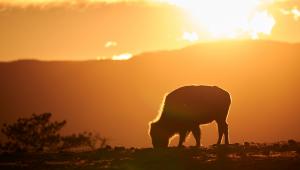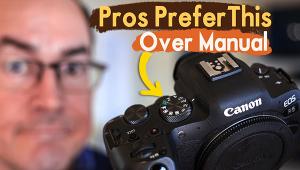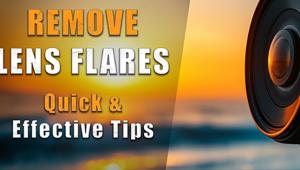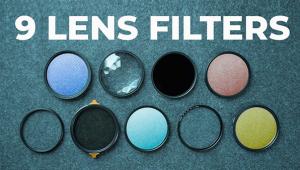The Pentax K10D; The Digital K-Mount World Expands
The Pentax K100D is an awesome camera for the price and works with all the 24 million Pentax lenses made since 1964. Now Pentax Imaging is "kicking it up a notch" with the K10D, a more serious, even professional, D-SLR as evidenced by its stainless-steel chassis. The camera is weather-resistant with 72 seals, including shutter release and all switches, levers, and dials. Pentax announced the optional D-BG2 Battery Grip that, along with the camera's lithium ion battery, doubles battery life. It features the same rugged construction as the K100D and has a vertical shutter release, DOF preview lever, AE-lock button, and control dials.
 |
New Stuff
The K10D combines a 10.2-megapixel (23.5x15.7mm) CCD with Pentax's Real
IMage Engine (PRIME) to produce
true-to-life color. They've added a 22-bit analog/digital converter for
transferring image files with accurate color and richer gradation to the PRIME
imaging engine. A dust removal system incorporates a Special Protect (SP) coating
to keep the imager's surface dust-free and a shake-your-bootie à
la Olympus' shift mechanism to shake any remaining dust off the CCD.
The 11-point, wide-frame autofocus system has nine cross-type sensors in the
middle to focus accurately, even when the subject is positioned off-center.
The in-focus sensor point is superimposed in red in the viewfinder. An auto
sensitivity control function automatically sets the optimum sensitivity up to
ISO 1600 based on subject brightness and the lens' focal length. That's
not a feature I especially like or expect to use but will help newbies get sharp
pictures under poor lighting situations. More experienced users will prefer
to manually set the ISO from 100-1600.
 |
|
|
The camera's shutter is designed to withstand 100,000 releases and is
especially quiet, something wedding photographers will appreciate. It has a
top speed of 1/4000 sec and a flash synchronization speed of 1/180 sec. The
K10D offers continuous shooting at 3 frames per second (fps). When shooting
in JPEG, you can make as many images as you like until the Secure Digital (SD)
card fills up. In Raw mode you can capture bursts of nine images at 3 fps.
The K10D offers a 2.5" LCD preview screen on its back that allows 140Þ
viewing vertically and horizontally. With its 210,000 pixel resolution you can
zoom images during playback up to 20 times to check focus, subject's expression,
or to see if everybody's eyes are open.
While not new with this model, the Shake Reduction (SR) system offers a 2.5
to 4-stop advantage for images made under difficult shooting conditions such
as macro, telephoto, or low light. The SR mechanism magnetically oscillates
the CCD vertically and horizontally, while adjusting the speed in proportion
to the amount of camera shake detected by built-in sensors. As a result, the
K10D does not require special Anti-Shake lenses and can be used with almost
all existing Pentax K-, KA-, KAF-, and KAF2-interchangeable lenses as well as
Pentax screwmount and medium format lenses (with the appropriate adapter).
 |
|
|
Get With The Program
The K10D offers a choice of 16-segment multi-pattern metering, center-weighted
metering, and spot metering. Exposure options include what you might expect
such as Program, Shutter Priority, Aperture Priority, and Manual. There is even
an extended bracket function to capture three images of the same subject at
different contrast, saturation, sharpness, or white balance levels.
If that's not enough, the K10D's Hyper Program function allows the
user to switch from Program mode to Shutter Priority (Tv) or Aperture Priority
(Av) mode by turning a dial. To return to Program mode, press the green button
next to the shutter release button. (There's a green button on the D-BG2,
too.) When shooting in Metered Manual mode, a push of that same green button
allows the user to instantly set the proper exposure for the subject.
The K10D features a new Sensitivity Priority (Sv) mode that automatically selects
the optimum aperture and shutter speed for a user-selected sensitivity that
can be shifted (in 1/2 or 1/3 steps via Custom Functions) by turning a dial.
Shutter & Aperture Priority, a.k.a. TAv mode, automatically selects the
most appropriate sensitivity for a user-selected shutter speed and aperture.
Is this too many Exposure modes? You can ignore them if you like or take advantage
of them if you can. It's all based on maximizing the camera's capabilities
to suit the photographs you make and Pentax has gone out of its way bringing
that technology to you at an attractively low price point.
 |
|
|
Getting The Raw Facts
Although the K10D uses the same kind of PEF (Pentax Electronic File) as the
K100D and Samsung D-SLRs, Adobe Camera Raw (ACR) for Photoshop CS2 does not
recognize it because the EXIF data includes the specific camera name thus making
a K10D raw file different than a PEF from a K100D. According to Adobe, "The
next release of Lightroom and Camera Raw will support the Pentax K10D PEF format."
Adobe told me that would be after ACR 4.0 but in a surprise move included support
for the K10D with ACR 3.7. Since the K10D also offers raw capture in DNG format
it works with almost all recent versions of ACR.
Pentax ships two software utilities with the camera and Photo Browser does an
acceptable job of converting PEF files to a more portable format. The software
is available in Mac OS and Windows versions, something that seems to have escaped
notice with Samsung, but it ran agonizingly slow on my Power Macintosh G4.
 |
 |
||
|
|
- Log in or register to post comments

































